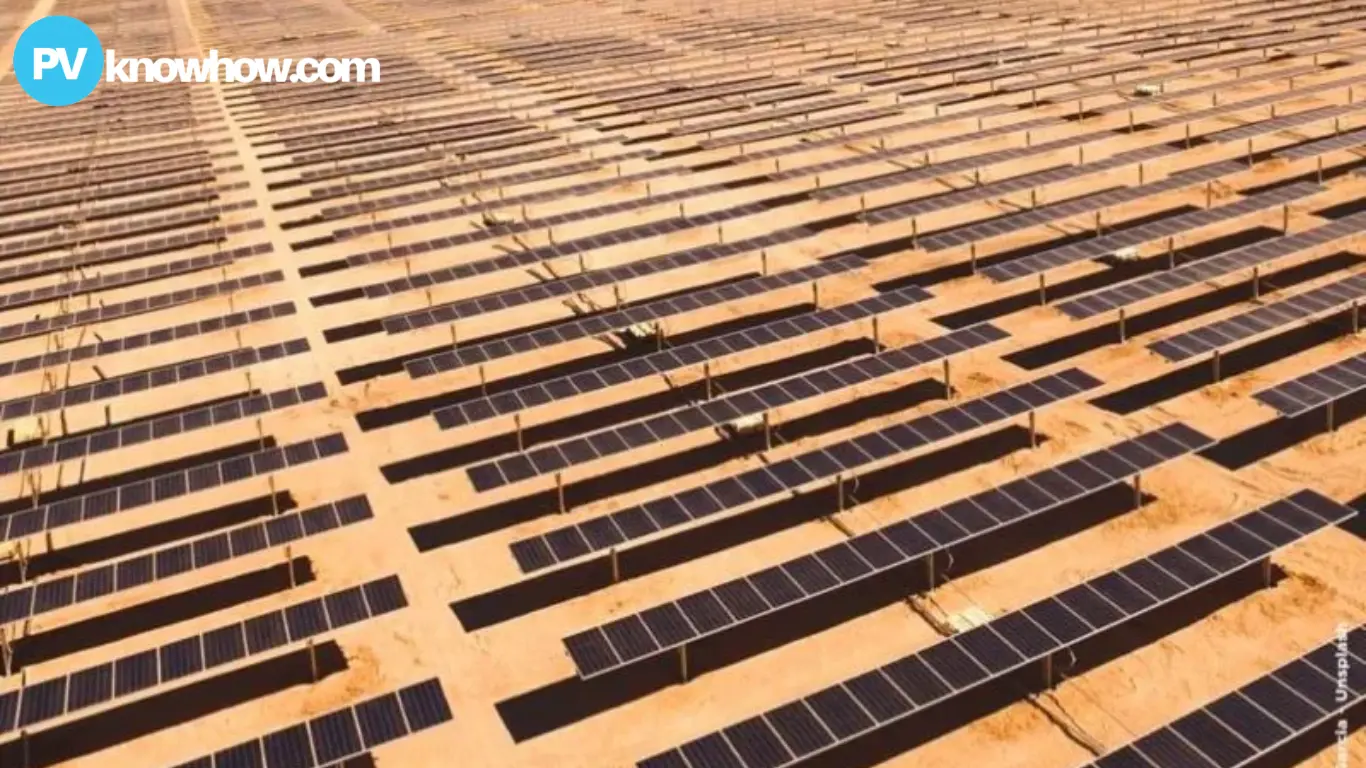The 200 MW solar plant in Kom Ombo, Aswan has officially started commercial operations, marking a significant milestone in Egypt's transition to renewable energy. This development aligns with the government’s ambitious target to increase the share of clean energy in the national electricity grid to 42% by 2030, underscoring its commitment to sustainable development.
Solar Plant Project Details and Investment
The Kom Ombo solar plant was awarded to ACWA Power under the Build-Own-Operate (BOO) model, with an overall capital investment of approximately $168 million. The project is backed by a consortium of international financial institutions, including the European Bank for Reconstruction and Development (EBRD), the African Development Bank (AfDB), the OPEC Fund for International Development, the Sustainable Energy Fund for Africa, the Green Climate Fund, and the Arab Bank (Apicorp).

Kom Ombo solar plant.
This diverse group of global funding organizations underscores the significant international economic and diplomatic interest in Egypt’s renewable energy potential. The Kom Ombo solar plant is designed to generate enough electricity to power up to 130,000 households, saving up to 15 million cubic meters of natural gas per month. This will not only reduce Egypt's dependence on fossil fuels but also significantly cut greenhouse gas emissions.
The solar plant - which began operations on April 11, 2023 - created approximately 1,900 jobs during its construction phase, benefiting the local community. The plant’s value chain includes 387,465 bifacial solar panels and 952 inverters, spread across an area of 4.8 square kilometers. These advanced technologies are crucial for maximizing energy production efficiency and minimizing the environmental footprint. The plant is expected to reduce carbon dioxide emissions by about 280,000 tons annually, highlighting its environmental benefits.
Importance of the BOO Model for Solar Plants
The BOO (Build-Own-Operate) model has proven to be an effective approach for developing large-scale energy projects in Egypt. Under this model, the project is built, owned, and operated by a private company, which recoups its investment by selling the generated electricity over a specified period. This arrangement is particularly advantageous for renewable energy projects, as it leverages private sector expertise and financing, reducing the financial burden on public resources.
Notable examples of successful BOO projects in Egypt include the Benban solar plant in Aswan, one of the largest solar plants in the world with a total planned capacity of 1.8 GW. The success of these projects demonstrates the BOO model’s ability to attract foreign investment, facilitate public-private partnerships, and help Egypt achieve its renewable energy targets.
Connection of Solar Plants to the National Grid
The Kom Ombo solar plant is connected to Egypt’s national grid via a 33/220 kV substation, which links it to the West Silo and Benban 1 substations. This ensures a stable supply of clean energy that meets the growing demand. According to a report by the World Bank, renewable energy projects in Egypt, including solar plants, could create more than 30,000 direct and indirect jobs by 2025.
The International Energy Agency (IEA) also projects that Egypt could become one of the largest solar energy suppliers in the region by the end of the decade. These predictions highlight the economic and environmental benefits of expanding renewable energy infrastructure in the country.
Broader Implications of Solar Plants for Egypt's Energy Sector
The commissioning of the Kom Ombo solar plant represents a crucial milestone in Egypt’s broader strategy to increase its renewable energy capacity. Transitioning to clean energy not only supports Egypt in meeting its global climate goals, but it also enhances its energy security and sustainability. This, alongside other renewable energy projects, underscores Egypt’s commitment to a cleaner future, and sets the stage for further renewable energy initiatives in the region.
The involvement of advanced solar technologies and international finance institutions highlights the global significance of renewable energy projects in Egypt. As the country continues to invest in and expand its renewable energy infrastructure, it is positioned to become a leader in innovation, economic growth, and environmental sustainability within the clean energy sector.
The 200 MW solar plant in Kom Ombo, Aswan, now Africa's largest solar plant, marks a pivotal moment for Egypt in its journey toward renewable energy success. With continued investment in technology and supportive government policies, Egypt’s renewable energy sector is poised for transformative development, establishing the country as a global leader in green energy.

